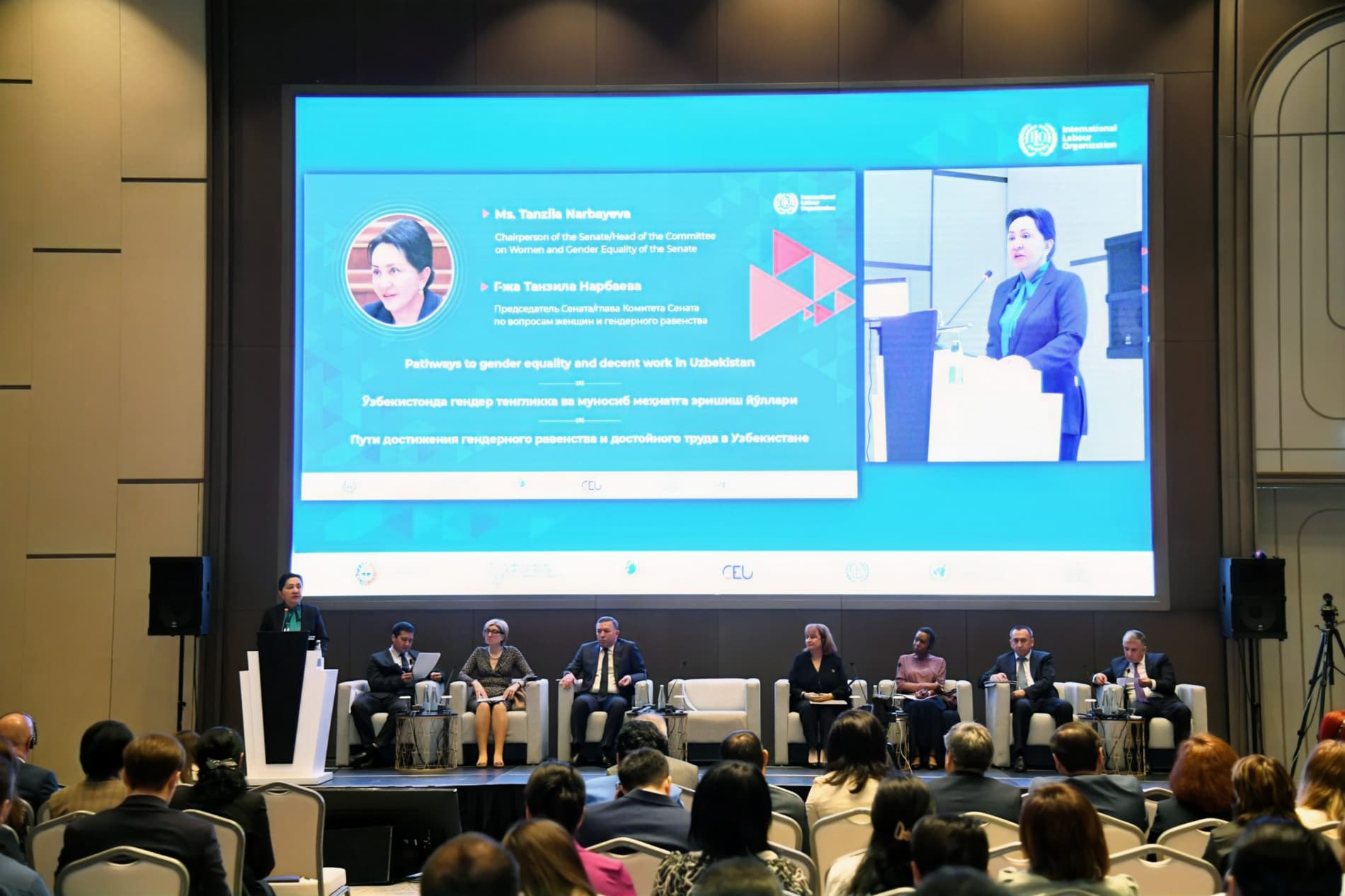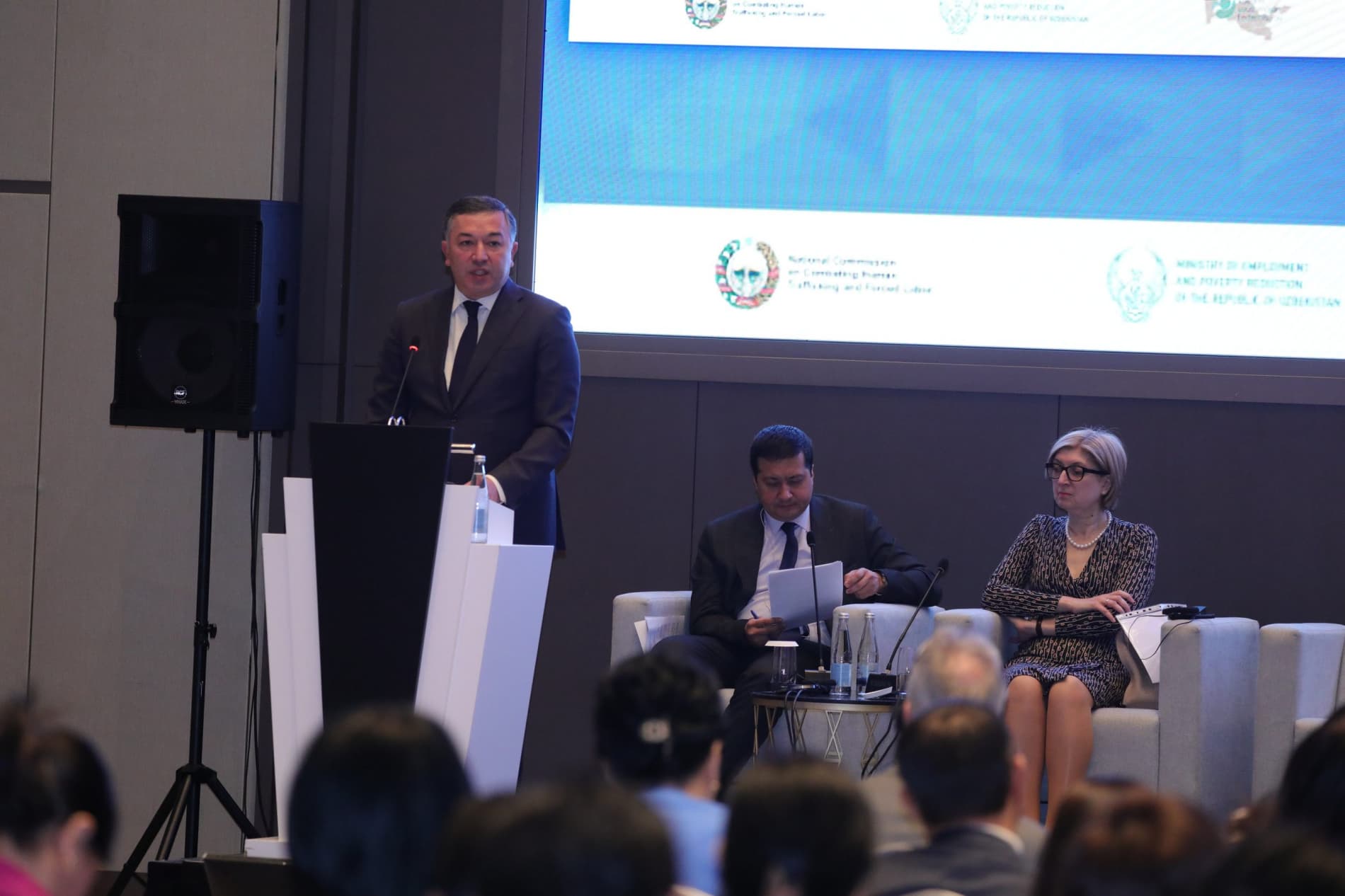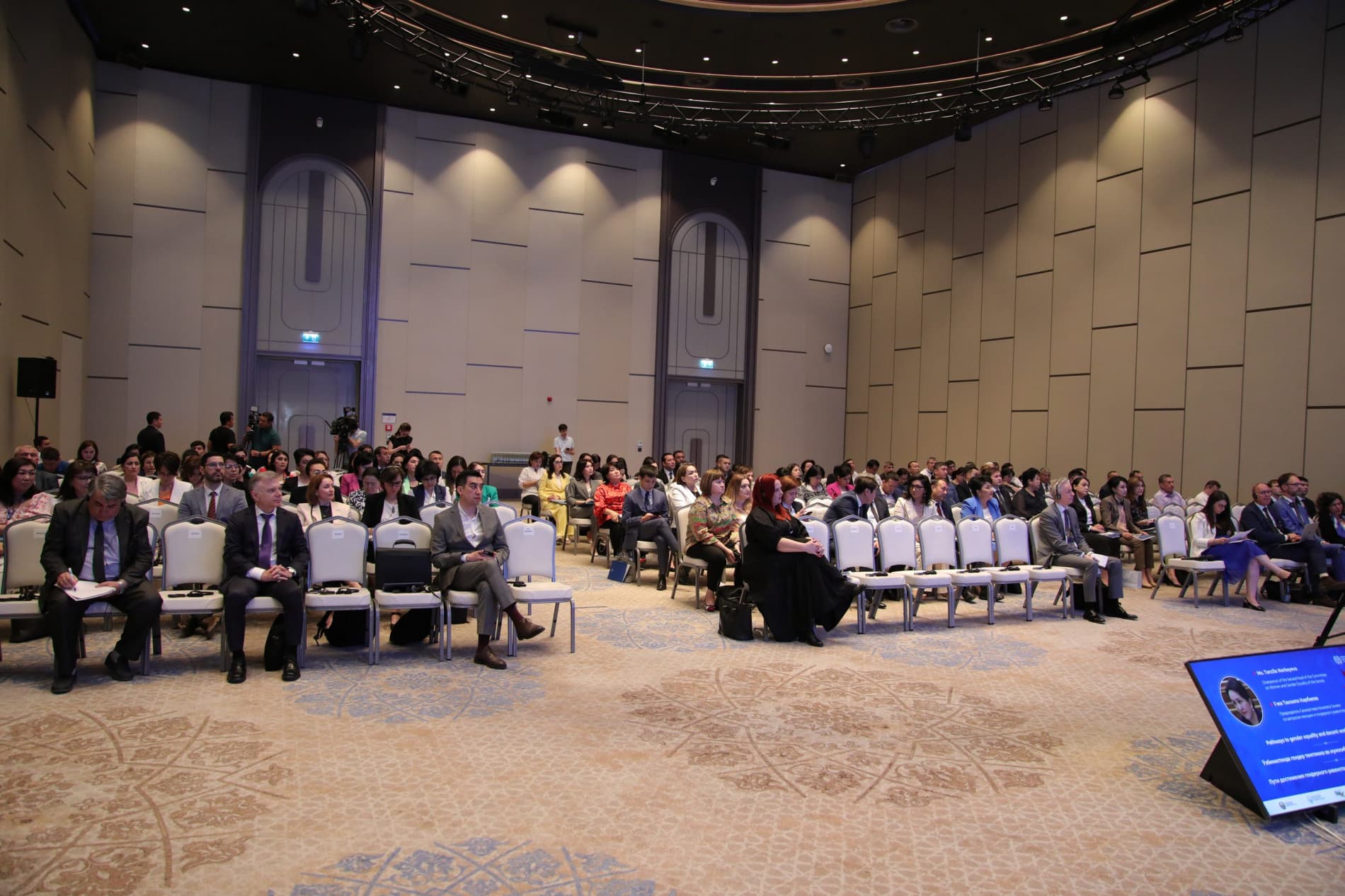Uzbekistan's experience in ensuring gender equality and creating decent working conditions will be improved based on international standards
2023-05-24 09:00:28 / News

The conference was attended by the Chairman of the Senate of the Oliy Majlis Tanzila Narbayeva, Director of the Bureau of the International Labor Organization for Eastern Europe and Central Asia Olga Kulaeva, more than 100 specialists and experts of international organizations and foreign states, heads of diplomatic missions in Uzbekistan, representatives of responsible ministries and departments.
At the event, the Chairman of the Senate emphasized that gender policy has become a key factor in the development of society and the state. Concepts such as "gender and development", "gender balance", "the role of women in socio-political life" are reflected in state policy documents and in the development of any legal act.
– The introduction of mandatory gender legal review of legislative acts and the creation of a gender audit institution is an important step towards ensuring gender equality. In addition, the prevention of gender discrimination, the fight against gender stereotypes and the creation of decent working conditions have become one of the key areas of state policy in this area. However, along with the successes achieved, we still have a lot to do in the field of ensuring labor, social and other rights of women, expanding their economic activity and professional development,” noted the Chairperson of the Senate.
As the participants of the conference emphasized, the adoption of the Strategy for achieving gender equality in Uzbekistan until 2030 made it possible to work in this direction on a systematic, purposeful basis.
In particular, special attention is paid to the improvement of national legislation on the basis of international standards in the field of ensuring gender equality. In recent years, more than 40 legislative acts and important conceptual documents related to the sphere have been adopted.
The participants emphasized that within the framework of these documents, important measures are being taken to create equal rights and opportunities for women and men, strengthen the role of women in state and public administration, create the necessary conditions for their education, training, employment, decent working conditions, as well as increasing the activity of women in economic life and protection from various kinds of oppression and violence.
To date, the proportion of women employed in the field of healthcare and education is 77%, in the economy and industry - 46%, about 2 thousand compatriots work in senior positions in state and public organizations.
As a result of the expansion of opportunities for women's education, the number of women studying in higher educational institutions has increased 6 times. In particular, it was noted that the proportion of women enrolled in bachelor's programs increased from 38% to 49%, and in master's programs - from 37% to 50%.
International experts also highly appreciated that the system of labor relations has been fundamentally reformed in our country and forced labor has been eradicated, and special attention is paid to the issues of ensuring employment of the population within the framework of the principles of decent work.
In this regard, the program on decent work in Uzbekistan for 2021-2025, adopted jointly with the International Labor Organization, as well as measures to widely introduce international standards in the field of labor, production and technical direction in the country's economy, are of great importance.
During the event, the director of the Bureau of the International Labor Organization for Eastern Europe and Central Asia Olga Kulaeva, specialists from a number of international organizations and representatives of diplomatic missions of foreign countries in Uzbekistan made presentations.
As a result of the event, recommendations were developed by the participants of the international conference on ensuring gender equality and the widespread application of the principles of decent work.
They set out specific objectives to ensure gender equality, increase the socio-economic and political activity of women, strengthen social protection and protection from harassment, ensure women's equal access to education and health care, create safe and decent working conditions for them, decent wages and reduction of informal employment, as well as the consistent continuation of the implementation of international standards in this direction.

